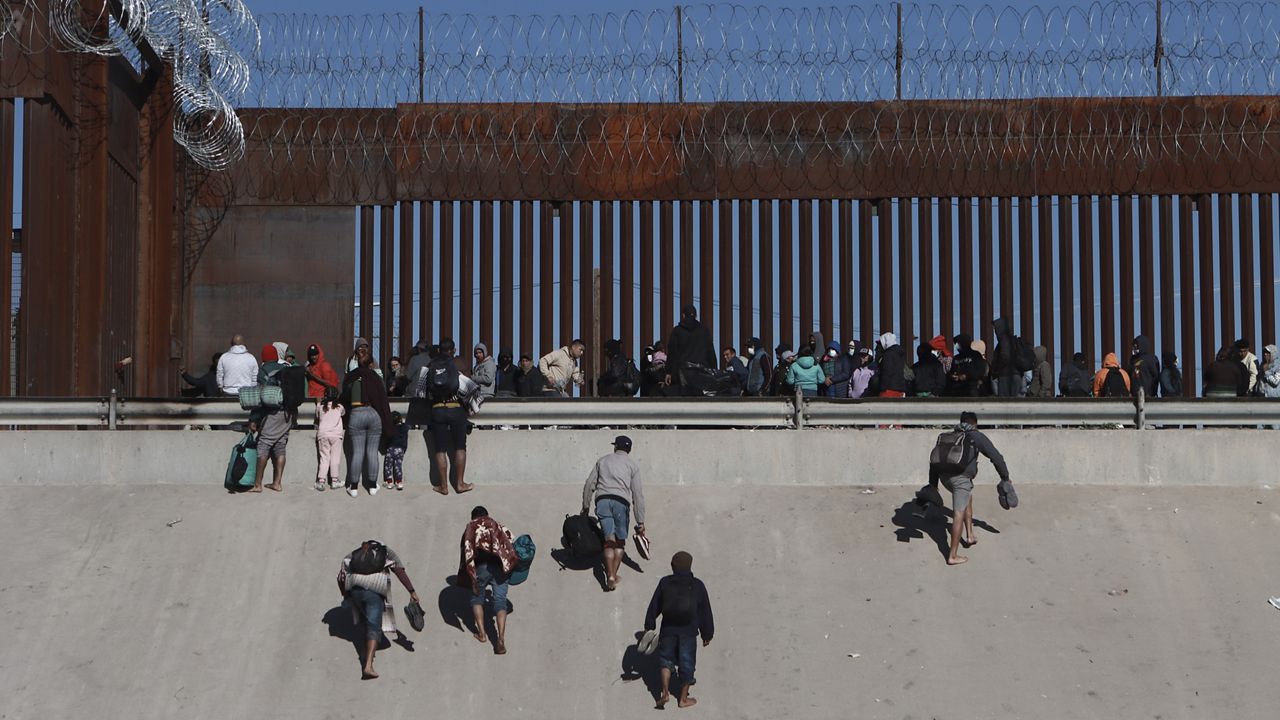Agents encountered 40% fewer people trying to cross the border last month after the Biden administration implemented new restrictions on the asylum process, making it the lowest data point in nearly two years.
U.S. Customs and Border Protection recorded more than 128,000 crossings in January, down from more than 221,000 in December.
At the beginning of the year, President Joe Biden announced a new policy for people from Venezuela, Nicaragua, Haiti and Cuba – the four populations that in recent months have traveled to the U.S.-Mexico border most often. People from those countries could apply to migrate through a new temporary program, but they could be blocked from the program and expelled to Mexico if they instead try to cross the border.
Later in January, border officials began implementing a smartphone app for people to claim asylum, making it the only way to ask for an exception from pandemic restrictions still in place at the border called Title 42. Thousands of asylum-seekers have been turned away under the policy.
The threat of being expelled or blocked from other migration pathways led to the lowest number of attempted crossings since President Biden’s first full year in office.
Encounters of Cubans, Haitians, Nicaraguans, and Venezuelans dropped by 95% in about three weeks – from a 7-day average of 1,231 in early January to 59 on January 31.
“The January monthly operational update clearly illustrates that new border enforcement measures are working,” said Troy Miller, acting CBP commissioner, in a statement.
Immigration advocates have criticized the new policies at the border, which they say severely restrict asylum-seekers’ legal right to claim protections in the U.S.
The new program – which grants humanitarian parole for Venezuelans, Nicaraguans, Haitians and Cubans – allows entry of up to 30,000 people per month, but it requires them to have a sponsor in the United States. And advocates say the need is much greater.
In its first month, the parole program admitted 11,637 Cubans, Haitians, Nicaraguans, and Venezuelans, according to CBP.
A group of Republican-led states have sued the Biden administration over the new program, arguing that parole is meant to be used on an emergency basis.
Department of Homeland Security Secretary Alejandro Mayorkas countered that the policy has already led to a drop in arrivals, after GOP leaders have dubbed the overwhelming numbers at the border a “crisis.”



